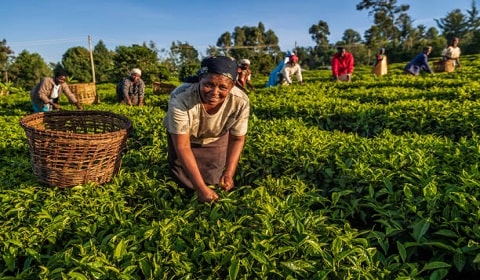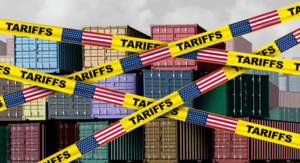
Empowering African Women: Breaking the Chains of Poverty, Climate Change, and Conflict
Empowering African women is not merely a moral imperative; it’s a strategic imperative for sustainable development. In confronting the interconnected challenges of poverty, climate change, and conflict, women remain disproportionately affected, yet their potential for catalyzing positive change is immense.
By investing in evidence-backed interventions like the Graduation approach pioneered by organizations such as BRAC, African nations can unlock this potential. By enabling women to control income, own productive assets, and participate in decision-making, we not only uplift individuals but also foster gender equality, enhance economic opportunities, and build resilient communities.
It’s time to break the chains that bind African women and unleash their transformative power.
Empowering African Women
Poverty, climate change, and conflict are formidable challenges that plague many African nations, disproportionately affecting women who live in poverty or at the fringes of society. Empowering African women to overcome these challenges is key to unlocking their immense potential to uplift their families and communities.
Through targeted poverty alleviation interventions and support, women can play a pivotal role in addressing these interconnected issues and driving positive change across the continent.
To tackle these intertwined issues and drive sustainable development, African countries must empower women living in poverty. Here’s how:
Table of Contents
1. Investing in Women’s Empowerment
African policymakers must prioritize investments in evidence-based interventions that enhance women’s control over income, ownership of assets, and decision-making within households, thus promoting Empowering African women. These interventions not only improve gender equality but also foster inclusive economic growth and human capital development, thereby advancing women empowerment strategies.
Read More: Ghana’s Role in Carbon Credit Innovation
2. Implementing the Graduation Approach
The Graduation approach, pioneered by organizations like BRAC, has shown promise in several countries. By providing people in extreme poverty with productive assets, basic needs support, and intensive coaching over a two-year period, this approach enables individuals to escape poverty and build resilience.
Notably, women have significantly benefited from this multifaceted intervention, with initiatives like “Empowering African women” integrating seamlessly into the program’s framework. Additionally, “graduation approach success stories” exemplify the transformative impact this approach has had on individuals and communities, particularly in empowering women to achieve economic independence and social empowerment.
Read More: Green Hydrogen Development in Africa
3. Boosting Women’s Productivity
Research indicates that Graduation interventions contribute to increased productivity among women. In regions like Sub-Saharan Africa and South Asia, these initiatives have led to higher off-farm enterprise employment for women, thereby expanding the labor supply.
Empowering African women and creating economic opportunities for marginalized women through such interventions not only fosters their economic independence but also contributes to broader societal development. Moreover, enabling women to establish sustainable livelihoods encourages positive behavioral changes within households.
4. Addressing Psychological and Social Challenges
Gender-sensitive coaching, life-skills training, and community engagement play pivotal roles in helping women overcome psychological and social barriers stemming from gender-based discrimination and limited education, thereby empowering African women.
Initiatives like the Sahel Adaptive Social Protection Programme have reported improvements in women’s psychological well-being and a reduction in domestic violence, contributing to sustainable development in Africa.
Read More: Climate-friendly Investments in Developing Countries
5. Promoting Economic Advancement
Programs like Kenya’s Rural Entrepreneur Access Program (REAP) have demonstrated substantial economic benefits for both participants and their communities. By providing training, mentorship, and asset grants to women to start businesses, REAP instills a sense of economic empowerment that spreads to other women in their surroundings.
Empowering African women through initiatives like REAP not only boosts individual prosperity but also catalyzes broader socioeconomic development by leveraging women’s entrepreneurial potential. This empowerment not only enhances financial independence but also fosters a ripple effect of positive change, ultimately contributing to the advancement and resilience of entire communities.
Read More: Food Security and Development in Africa
6. Government Action and Policy Integration
Recognizing the efficacy of big-push approaches, several African governments, including Kenya, Rwanda, and South Africa, are exploring Graduation-style programs. Rwanda, for instance, launched a national Graduation strategy aimed at empowering over 900,000 households in poverty by 2030. Integrating such initiatives into existing systems is crucial for sustainable poverty eradication efforts.
Empowering African women is a key component of these strategies, as they play pivotal roles within their households and communities. By providing them with access to education, resources, and opportunities, these programs not only uplift individual women but also catalyze broader socioeconomic development, fostering inclusive growth across the continent.
In addition to the Graduation approach, initiatives like BRAC’s Empowerment and Livelihood for Adolescents (ELA) model show promise at scale. ELA focuses on empowering young women and adolescents, equipping them with the skills and resources necessary to thrive in their communities.
Bottom Line
In conclusion, empowering African women is pivotal for breaking the vicious cycle of poverty, climate change, and conflict. By investing in women’s economic and social empowerment, African nations can unlock their full potential as agents of positive change. It’s time to prioritize women’s empowerment as a cornerstone of sustainable development strategies across the continent.







